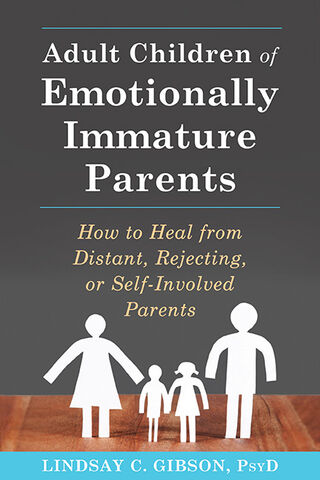Emotional Intelligence
Epidemic Emotional Immaturity
The deadly cost of not growing up.
Posted March 29, 2021 Reviewed by Davia Sills
Key points
- Emotional maturity is needed for our personal and collective health and safety.
- Emotional Immaturity (EI) appears in many forms and can lead to severe suffering.
- Recognizing EI and engaging in greater self-reflection can help us grow resilient together.
Part of resilience is having the emotional maturity to set healthy boundaries with ourselves and others. This can be an especially hard job when dealing with emotionally immature (EI) people. Fatigue is just one symptom that you may suffer if setting healthy boundaries is not your native language.
After all, working hard to do someone else's emotional work is not only exhausting but also futile. Creating healthy boundaries allows you to take care of yourself and restore a sense of well-being. Boundaries help you self-regulate and take ownership of your own emotional work while allowing others the dignity of doing theirs, should they decide to. As the work of emotional maturity returns to its respective owners, wellness has a better chance of emerging.

Along this journey of healing, many people identify that they grew up in a family system with an EI parent, as described by Dr. Lindsay Gibson in her book, Adult Children of Emotionally Immature Parents. Her straight-forward clarity about the direct costs and collateral loneliness of children raised by self-absorbed, controlling, and otherwise insensitive parents leads to a path of healing, once fully recognized.
We don’t have to look far to see the daily broader implications of emotional immaturity from a systems view: the deadly Capitol riots in the United States on January 6, regular mass shootings, the ongoing murder toll of Black and Asian lives, daily violence against women, rampant lies about the ongoing pandemic, unmasked tantrums being thrown in grocery stores, and daily emotional assaults on each other through social media. Exaggerated drama, fits of rage, selfishness, and emotional manipulation are hallmarks of emotional immaturity. And it appears to be a global problem. EI adults each have their own history that has led to their arrested emotional growth, and when they are not held accountable for their actions, the results can be disastrous.
Are we suffering from an epidemic of emotional immaturity?
Being able to recognize EI around you can help in three ways:
- To see the truth of how damaging this behavior is and set realistic expectations to anticipate future behavior.
- To identify what we might do to heal, protect, and respond appropriately to the damage of emotionally immature behavior.
- To see ourselves on the spectrum of emotional maturity and where we may have room to grow.
Below are some behavioral, thought, and emotional patterns that exist on a continuum of maturity.
The phenomenon of emotional immaturity has gone unnamed long enough. Perhaps you recognize some of these traits or have experienced the pain of what it feels like to be in a relationship with an emotionally immature adult. Perhaps you’ve noticed some of these behaviors in the world around you. Identifying it now can prevent the EI epidemic's rampant spread and mitigate its damage.

Together we can lower the deadly costs of not growing up by raising awareness of how emotionally mature behavior benefits all of us. We can work to fully see and accept each other, growing resilient together.
Questions for reflection:
- What do you want for yourself now?
- How can we raise our collective emotional maturity?
References
Gibson, L. (2015). Adult Children of Emotionally Immature Parents: how to heal from distant, rejecting, or self-involved parents. New Harbinger Publications, Inc.
Gibson, L (2019). Recovering from Emotionally Immature Parents: Practical Tools to Establish Boundaries and Reclaim Your Emotional Autonomy. New Harbinger Publications, Inc.
Special thanks to Dr. Lindsay Gibson for her thoughtful and kind feedback for this blog.


